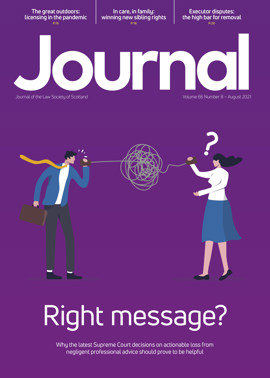Pensions: Plugging the LGPS exit credit hole
In R (Enterprise Managed Service Ltd) v Secretary of State for Housing, Communities and Local Government [2021] EWHC 1436 (Admin) (27 May 2021), the claimant sought judicial review relating to the Local Government Pension Scheme (Amendment) Regulations 2020 (SI 2020/179).
The claimant had negotiated an outsourcing contract with a local authority for the provision of services and had become an admission body in the Local Government Pension Scheme (“LGPS”) in order to meet requirements to give contract employees access to that pension scheme. It challenged the lawfulness of reg 1 of the 2020 Regulations, which gave retroactive effect to amendments to the Local Government Pension Scheme Regulations 2013 (SI 2013/2356) (“LGPS Regulations”).
Under the LGPS Regulations, with effect from 14 May 2018, at the end of an outsourcing contract under reg 64, one result of the actuarial valuation then completed could be a surplus position; an exit credit payment would then have to be made to the exiting admission body. This was the case even if at the time the contract was negotiated the LGPS Regulations did not contain any provision to make exit credit payments and the local authority took all or some of the pension risk by bearing all of the costs and the risk in relation to the contractor’s liabilities to the pension fund through the life of the contract (commonly known as pass-through arrangements) – so any exit credit payment would be a windfall to the contractor.
This was later recognised as an oversight, and provisions allowing for certain factors to be taken into account when assessing whether there is an exit credit, and the amount of any exit credit (which could be zero), were introduced on 20 March 2020, but with retrospective effect to 14 May 2018. This meant that any exit credits that would have been payable between 14 May 2018 and 20 March 2020 but had been withheld and not paid, might not be payable.
Justified extinction
When the claimant’s contract expired in June 2018, a surplus of £6,518,000 was identified, but was not paid out by the LGPS administering authority.
The claimant alleged that its rights under article 6 of the European Convention on Human Rights had been breached by the retrospective extinction of the claim it had raised for payment.
Noting that a key question was whether there was a sufficiently compelling public interest in making the 2020 Regulations retrospective, thus preventing payment not only of exit credits which were anticipated but also of those which had actually fallen due but had not been paid, the court held that the defendant was justified in correcting its own policy error with retroactive effect for a number of reasons, including:
- Exit credit payments can, at least in some cases, be fairly characterised as a windfall where parties made their economic bargain on the basis of pension risk which they knew about, but without any adjustment for the possibility of exit credits (which did not exist at the time this contract was entered into), or where the surplus would or could arise from the performance of a fund which, though notionally associated with the admission body at the point of admission to the LGPS, did not come from that body in the first place.
- The effect of paying exit credits which had already fallen due when the 2020 Regulations came into force would be to diminish the ability of the LGPS funds to provide pension benefits, creating a real risk of future deficits which ultimately would fall on taxpayers.
- The benefit of the windfall would be for commercial companies.
Scottish comparisons
The position in Scotland is not the same. The possibility of exit credit payments was also introduced in 2018, but there are no such amending regulations to restrict exit credit payments. This position was raised by the claimant as part of its argument on article 6. However, Bourne J indicated that the claimant could not “rely on the absence of any equivalent to the 2020 Regulations in Scotland for the inference that the regulations have no compelling justification”.
He preferred the contention by counsel for the defendant that in Scotland, “similar concerns have not arisen, there being a significantly lower level of outsourcing of services by local authorities”.
This does however mean that in Scotland, aspects identified and intended to be resolved by the 2020 Regulations in England, and confirmed by the outcome of the judicial review in the Enterprise case, remain potential challenges and issues for local authorities and contractors in relation to outsourcing contracts in Scotland.
Regulars
Features
Briefings
- Criminal court: Sentencing deconstructed
- Family: Litigation and lottery wins
- Human rights: Reinforcing the right to be forgotten
- Pensions: Plugging the LGPS exit credit hole
- Criminal law: The future of sexual offence trials
- Scottish Solicitors' Discipline Tribunal
- Property: Heat networks: the key to low-carbon heating?
- In-house: Power of the nudge






